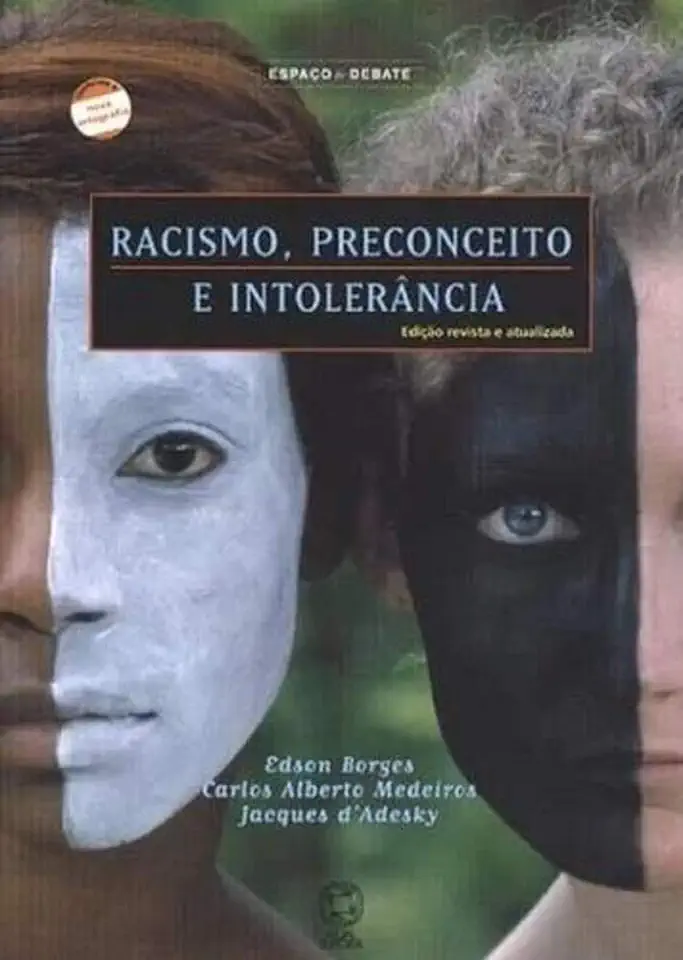
Racism, Prejudice and Intolerance - Edson Borges and Others
Racism, Prejudice and Intolerance: A Comprehensive Guide to Understanding and Combating Discrimination
Introduction
In today's increasingly interconnected world, it is more important than ever to understand and combat racism, prejudice, and intolerance. These destructive forces can have a devastating impact on individuals, communities, and societies as a whole.
This comprehensive guide, written by a team of experts in the field, provides a thorough examination of racism, prejudice, and intolerance. It explores the historical roots of these issues, the psychological mechanisms that underpin them, and the devastating consequences they can have.
Understanding Racism, Prejudice, and Intolerance
Racism, prejudice, and intolerance are all forms of discrimination that are based on generalizations about individuals or groups of people. While racism is specifically based on race, prejudice can be based on any number of factors, such as ethnicity, religion, gender, sexual orientation, or disability. Intolerance, meanwhile, refers to a general unwillingness to accept or tolerate difference.
These forms of discrimination can manifest themselves in a variety of ways, from subtle microaggressions to overt acts of violence. They can have a profound impact on the lives of those who experience them, leading to psychological distress, social isolation, and economic hardship.
The Roots of Racism, Prejudice, and Intolerance
Racism, prejudice, and intolerance are not new phenomena. They have existed throughout human history, and they have been used to justify everything from slavery to genocide.
There are a number of factors that can contribute to the development of these destructive attitudes, including:
- Socialization: We learn about racism, prejudice, and intolerance from our parents, peers, and the media. If we are raised in an environment that is hostile to certain groups of people, we are more likely to develop negative attitudes towards them.
- Economic competition: When resources are scarce, people may be more likely to compete with others who are different from them. This competition can lead to conflict and discrimination.
- Political power: Racism, prejudice, and intolerance can be used as tools to maintain political power. By dividing people along racial, ethnic, or religious lines, politicians can weaken their opponents and consolidate their own power.
The Consequences of Racism, Prejudice, and Intolerance
Racism, prejudice, and intolerance can have a devastating impact on individuals, communities, and societies as a whole.
For individuals, discrimination can lead to:
- Psychological distress: Discrimination can cause feelings of anxiety, depression, and low self-esteem. It can also lead to post-traumatic stress disorder (PTSD).
- Social isolation: Discrimination can lead to social isolation, as people who experience discrimination may be excluded from social activities and opportunities.
- Economic hardship: Discrimination can make it difficult for people to find jobs, housing, and education. This can lead to poverty and economic hardship.
For communities, discrimination can lead to:
- Social unrest: Discrimination can lead to social unrest, as people who experience discrimination may become frustrated and angry. This can lead to protests, riots, and even violence.
- Economic decline: Discrimination can lead to economic decline, as businesses may be reluctant to invest in communities that are perceived to be unsafe or unstable.
- Political instability: Discrimination can lead to political instability, as people who experience discrimination may lose faith in the government and the political system.
Combating Racism, Prejudice, and Intolerance
Racism, prejudice, and intolerance are serious problems, but they are not insurmountable. There are a number of things that can be done to combat these destructive forces, including:
- Education: Education is one of the most important tools for combating racism, prejudice, and intolerance. By teaching people about the history of discrimination, the psychological mechanisms that underpin it, and the devastating consequences it can have, we can help to change attitudes and behaviors.
- Contact: Contact between people from different backgrounds can help to break down stereotypes and prejudices. When people get to know each other as individuals, they are more likely to see each other as human beings and less likely to discriminate against them.
- Advocacy: Advocacy is another important tool for combating racism, prejudice, and intolerance. By speaking out against discrimination and supporting policies that promote equality, we can help to create a more just and equitable society.
Conclusion
Racism, prejudice, and intolerance are serious problems, but they are not insurmountable. By understanding the roots of these destructive forces, the consequences they can have, and the strategies that can be used to combat them, we can help to create a more just and equitable world.